|
The pandemic and remote learning brought many surprises to Iowa parents. Parents heard lessons plans and language that sounded ideologically tinged. They objected to books for elementary school students that were sexually explicit. But local school administrators and school boards were not responsive to their complaints.
Then parents found an answer. They went to Des Moines and demanded action by state legislators and the governor – and got it – in the form of the Students First Act. This law will provide Iowa families with education savings accounts (ESAs) to put toward private school tuition, tutoring, textbooks, curricular materials, and a variety of other education expenses. Iowa’s ESAs are funded with a portion of the per-pupil spending. They are worth $7,500 a year, more than enough to cover the average Iowa private elementary school tuition of about $4,500. These ESAs come close to covering the average private high school tuition of $9,200. Two lessons from Iowa stand out as a model for other states to pursue. First, enacting school choice takes political savvy. According to Fox News reporting, public schools are big employers in rural areas and their administrators have big sway with their local legislators. To pass the Students First Act, Gov. Kim Reynolds had to aggressively lobby for the bill – even to the point of supporting challengers to recalcitrant incumbents. The second lesson is that supporting widened school choice is a way for parents to address all the aspects they don’t like about public schools. Iowa’s ESAs will support quality private schools, including religious schools, which uphold state standards in education while offering parents a wider array of choices more consistent with their beliefs. And ESAs will have the added benefit, perhaps, of bringing competition that may instill reforms and improvements to public school education. Exporting this model would work wonders. Today Iowa, maybe Illinois tomorrow? Protect The 1st recently reported on a Stanford student who was being investigated for reading Mein Kampf while on campus. Stanford became aware of the situation through its Protected Identity Harm reporting system, a portal for students to report instances of harm done to their person. The Foundation for Individual Rights and Expression (FIRE) has called the system “Orwellian,” arguing that it is used to “pressure students to confess, ‘take accountability,’ and promise to ‘change…’”
Now, a group of professors at Stanford is speaking out, calling for an end to the anonymous reporting system that they say threatens free speech on campus. Although the system has been in place since the summer of 2021, faculty members at the university say they did not know of its existence until the Mein Kampf incident occurred and sparked widespread student outrage. Russell Berman, a professor of comparative literature, said the system “reminds me of McCarthyism.” Yet the university has said the system is designed to help students get along with one another. Across the country, about half of all colleges and universities have similar reporting systems. At Stanford, students can report any incident where an individual or group was harmed on the basis of characteristics including race or sexual orientation. These reports trigger an inquiry within 48 hours. While participating in the inquiries are voluntary for students who are targets of a complaint, Juan Santiago, a professor of mechanical engineering, has argued it may not feel that way. He says, “If you’re an 18-year-old freshman and you get contacted by an administrator and told you’ve been accused of some transgression, what are you going to do?” So far, 77 Stanford faculty members have signed a petition requesting the school investigate free speech and academic freedom on campus and calling for the university to abolish the anonymous reporting system. Protect The 1st applauds these petitioners’ efforts to abolish this Orwellian system. Finance Professor Dr. Richard Lowery is suing the University of Texas at Austin for allegedly threatening to punish him after he criticized the university’s administration. His lawsuit claims that the university threatened to reduce his pay, remove his affiliation with UT's Salem Center for Public Policy, and even his job. (A hat tip to Eugene Volokh for providing the facts of the case).
According to the lawsuit, Lowery was targeted by the university for criticizing the administration's approaches to critical race theory, affirmative action, academic freedom, competence-based performance measures, and the future of capitalism. Lowery is an outspoken commentator on university affairs, publishing articles in The Hill, the Texas Tribune, the Houston Chronicle, and The College Fix. But after Lowery recently criticized the university’s Diversity, Equity, and Inclusion (DEI) policies, the professor claims the administration "responded with a campaign to silence" him. In the lawsuit, Lowery asserts that a senior UT official attempted to pressure Carlos Carvalho, the Executive Director of the Salem Center, to reprimand him. At first, Carvalho resisted, believing that the First Amendment protected Lowery from punishment. When Carvalho refused, Professor Lillian Mills, Dean of the McCombs School of Business at the university, reportedly threatened to remove Carvalho, saying “I don't need to remind you that you serve at my pleasure.” The lawsuit also details another incident, where one UT employee requested that the police surveil Lowery’s speech. As the lawsuit states, the university “allowed, or at least did not retract, a UT employee's request that police surveil Lowery's speech, because he might contact politicians or other influential people.” Why not call out the National Guard? Lowery has garnered a large public following for his outspoken views on campus affairs, and as one employee wrote, "We are more worried about the people he reaches than him. Some of his supporters are authors, podcasters, and politicians.” Imagine that! Speech that reaches podcasters and politicians. Is this what constitutes an on-campus conspiracy these days? The lawsuit contends that the university violated Lowery’s academic freedom by depriving him of his right to critique ideas, policies, hiring, and participate in the academic life of the university. Protect The 1st looks forward to further developments in this case. In a significant victory for the First Amendment, the U.S. District Court for the Southern District of New York issued a preliminary injunction against a misguided New York law targeting online speech. The lawsuit challenging the law was brought by constitutional law professor and Protect The 1st Senior Legal Advisor Eugene Volokh, and online platforms Rumble and Locals, which filed an amicus brief arguing that the law was unconstitutional. The group was represented by the Foundation for Individual Rights and Expression (FIRE). The court's decision is a clear recognition of the First Amendment and a win for the plaintiffs, who argued the law's vague definition of "hateful" speech would have a chilling effect on First Amendment rights.
The plaintiffs argued that the law, which required the removal of “hateful” posts, violated the First Amendment by imposing a content-based restriction on speech without a compelling government interest. The court noted that the law's definition of "hateful" speech was too broad and could encompass a wide range of protected speech, including political speech and satire. The court also found that the law's requirement that online platforms remove "hateful" speech within 24 hours of receiving a complaint would be difficult to comply with and could lead to the removal of lawful speech. The court concluded that the plaintiffs were likely to succeed on their First Amendment claim and that the public interest favored an injunction. "New York's vague and overbroad law sought to stifle robust debate on the internet," said FIRE attorney Daniel Ortner in a press release. "Today's decision is a victory for the First Amendment that should be celebrated by everyone who hopes to see the internet continue as a place where even difficult and contentious issues can be debated and discussed freely." Observers of the U.S. Supreme Court have long wondered if Justice Clarence Thomas would lead his colleagues to hold internet companies that post users’ content to the same liability standard as a publisher.
In a concurrence last year, Justice Thomas questioned Section 230 – a statute that provides immunity for internet companies that post user content. Justice Thomas noted that the “right to cut off speech lies most powerfully in the hands of private digital platforms. The extent to which that power matters for purposes of the First Amendment and the extent to which that power could lawfully be modified raise interesting and important questions.” In the case heard today, Gonzalez v. Google, the family of a woman murdered by terrorists in Paris is suing Google not for a direct post, but for a YouTube algorithm that temporarily “recommended” ISIS material after the crime. In oral argument, Justice Thomas posed a more skeptical note. “If you call information and ask for al-Baghdadi’s number and they give it to you, I don’t see how that’s aiding and abetting,” he said. Justices returned to precedents about lending libraries and bookstores not being held accountable for the content in their books. Protect The 1st joined with former Sen. Rick Santorum in an amici brief before the Court arguing that Section 230 protections are absolutely needed to sustain a thriving online marketplace of ideas. Social media companies make a good faith effort to screen out dangerous content, but with billions of messages, perfection is impossible. Google attorney Lisa Blatt brought this point home in a colorful way, noting that a negative ruling would “either force sites to take down any content that was remotely problematic or to allow all content no matter how vile. You’d have ‘The Truman Show’ versus a horror show.” The tone and direction of today’s oral argument suggests that the Justices appreciate the potential for an opinion that could have negative unforeseen consequences for free speech. Justice Brett M. Kavanaugh added that the court should not “crash the digital economy.” Protect The 1st looks forward to reading the Court’s opinion and seeing its reasoning. A Phoenix resident struck a victory for the First Amendment in the Maricopa County Superior Court (hat tip to Eugene Volokh for detailing the arguments of this case.)
In October, the Phoenix City Council adopted Resolution 22073 to establish a Special Promotional and Civic Event area in downtown Phoenix in anticipation of events and activities related to Super Bowl LVII. The resolution stipulated that all temporary signs needed to be authorized by the NFL or the Arizona Super Bowl Host Committee. Bramley Paulin, the owner of two downtown properties, went to court to defend his First Amendment rights. Paulin claimed that Resolution 22073 constituted prior restraint because it prospectively forbade the expression of any message until it could be reviewed and approved by a private third party. That made it a content-based restriction on speech. The court agreed with Paulin, also stating that Resolution 22073 is doubly unconstitutional: since the resolution provided no standards to guide decision-makers' discretion, the resolution’s delegation of governmental authority was illegitimate. Judge Bradley Astrowsky wrote that his court “finds that handing over power to an unaccountable third party is totally antithetical to the principles of limited government enshrined in Arizona's Constitution.” Protect The 1st is pleased to see First Amendment rights protected in Arizona. Enabling private third parties to determine what is or isn’t permissible speech, with unaccountable powers granted to them by state authorities, portrays either startling ignorance of the Constitution or contempt for it. “Reading is not an end to itself, but a means to an end,” one bestselling author wrote.
We beg to disagree. Reading is often a pleasure that is an end to itself. But in this case, this quote from the author of Mein Kampf makes an excellent point about one book – the author’s book. We’ve read Adolf Hitler’s screed in college as a means to an end, to understand the diseased thinking and rhetoric that led to the world’s biggest war and its most horrific atrocity. We would point out that Winston Churchill took the trouble to read Mein Kampf, and referred to it often in warning about the gathering storm while others breezily dismissed Hitler’s views as mere prejudices that would fall by the wayside once he was in office. These thoughts were prompted by a back-and-forth between the Foundation for Individual Rights and Expression (FIRE) and what it called an “Orwellian reporting” system that ensnared a student – a young woman who posted a Snapchat picture of herself reading Mein Kampf with a quizzical expression on her face. “It is an ambiguous photo, and everyone sees what they want to see,” Rabbi Jessica Kirschner, executive director of Stanford’s Hillel chapter, told Inside Higher Education. In the ensuing fury, fair points emerged. Jewish students have reason to be sensitive about resurgent antisemitism, as we reported about comments made in a Stanford Diversity Equity and Inclusion program (a gobsmacking irony if ever there was one). On the other hand, FIRE reports that this Stanford student may face questioning as a result of her book-reading being reported to Stanford’s Protected Identity Harm reporting system. Which brings us back to Rabbi Kirschner’s shrewd observation that the photo could be interpreted in many ways. Was it a juvenile joke? Was it an incitement? Was it a show of appropriate and cautionary skepticism? Only the woman who posted the picture knows. And we would suggest that instead of spending any more time trying to deduce her thinking, perhaps it should be enough to trust the good heart and mind of a woman who got accepted into Stanford and affirm that good people read bad books for good reasons. Imagine hearing the news that former presidents George W. Bush and Barack Obama, after serving several years in a minimum-security facility, will soon be released on parole. Both men were convicted of lying: President Bush for asserting that there were weapons of mass destruction in Iraq, President Obama for promising that he would enforce a “red line” with severe consequences if the dictator of Syria used chemical weapons.
Defenders of each continue to stoutly maintain that neither president lied. Rather, President Bush was the victim of bad intelligence as were allies from London to Tel Aviv. President Obama violated his promise to take military action in response to a Syrian chemical attack by picking a flexible diplomatic approach that ultimately led to the removal of 1,300 tons of Syria’s chemical weapons. Nevertheless, the law’s the law. Both men told lies and deserved to go to prison… The saga of Rep. George Santos (R-NY) is inciting some commentators and a few officeholders to want to criminalize “lying” by politicians. Making such distinctions is not as simple as it seems. To be sure, Rep. George Santos’ claims to have graduated from schools he never attended are demonstrable lies. But what about common assertions in American political campaigns? Do tax cuts exacerbate the deficit and thereby hurt the economy, or do they stimulate economic growth that eventually curb the deficit? Do tax increases take money out of the productive economy, or do they provide funds for investments in health and education that ultimately spur economic growth? There are plenty of Republican and Democratic politicians who can argue these cases. Are they liars or politicians with conviction? Then there are lies that in the judgment of history protected the nation. How do we judge Franklin Delano Roosevelt’s white lies about Lend Lease assistance that kept the United Kingdom from succumbing to Nazi Germany? Or John F. Kennedy’s initial pretense of normalcy at the beginning of the Cuban Missile Crisis? This issue is about to be tested in court. A 1931 statute in North Carolina prohibits the spread of “derogatory” information about candidates for state office that the speaker knows to be false or which is spoken with “reckless disregard” for its accuracy. It is on this basis that a state prosecutor is investigating North Carolina Attorney General Josh Stein for breaking the law by accusing his Republican opponent of being responsible for a backlog of rape kit testing. The Republican candidate had argued that this resulted from dysfunction with the police, not his office. Was Stein’s criticism a lie? It is really a matter of perspective. Imagine putting such a law into the hands of partisans as President Joe Biden and former president Donald Trump eye a bid for the White House. Campaigns would become blizzards of subpoenas and grand juries. Partisans would have the tool to criminalize politics, as it is in many countries from Venezuela to Russia. Besides, if we criminalized lying in politics, how many new prisons would we have to build? The attempted prosecution of a state official is unlikely to stand. A court is allowing Attorney General Stein to contest the law on First Amendment grounds. Protect The 1st is optimistic that Stein will prevail. In 2012, the U.S. Supreme Court in U.S. v. Alvarez voided the conviction of a minor politician in California who violated the Stolen Valor Act by falsely claiming that he had been a U.S. Marine and had won the Congressional Medal of Honor. The Court recognized that such lies are eventually revealed. When exposed, such lies bring punishment in the form of widespread public contempt and ridicule, ending political careers – as it surely will for Rep. Santos. The beauty of the First Amendment is that claims and resumes are eventually subjected to the crucible of public inspection. We should hold to the conviction that, as Shakespeare put it, at length the truth will out. Florida Gov. Ron DeSantis recently attracted a fusillade of criticism by canceling an Advanced Placement African American studies course for public high school students that he deemed too “woke.” This is just one of many such controversies that erupt when elected officials, from school boards to governors, struggle over curriculum, as well as over library books.
Regardless of personal ideology, the problem with these debates over whether, say, a history curriculum veers into 1619 ideology, or perhaps glosses over the ugly warts in our country’s history is that the average parent will often shrug and justifiably answer, “how would I know?” For some reason, some of the content taught in schools – material that will literally be read by millions of school children – can be treated like classified information by local school boards. How are common-sense deliberations between school boards and parents going to yield a productive answer unless the actual material can be discussed? Otherwise, parents are left to react to impressions and rumors. A minor victory occurred in Forsyth County, Georgia, at the end of January, when a U.S. District Court permanently enjoined the local school district from prohibiting speakers from reading or quoting verbatim from the text of any book or written words available in any Forsyth County library or classroom, while addressing the school board during the public comment period. The parents’ group, Mamma Bears of Forsyth County, told the court that their lawsuit does not try to “resolve the question of which books should be available in school libraries, but instead, addresses unlawful attempts to sanitize how parents speak about those books in the presence of elected officials and other adults.” The plaintiffs’ attorneys sought $17.91 in nominal damages – in case anyone on the board needed to be schooled on the passage of the Bill of Rights. It may sound like paranoia from the era when conspiracy theorists were worried about fluoride in drinking water and communists under every bed. But it was with good reason that the U.S. House recently voted to establish the Select Committee on the Strategic Competition Between the United States and the Chinese Communist Party, opening a formal process with which to investigate how China is infiltrating our country and, among other things, attempting to stifle public debate about China-related issues. This examination must include K-12 classrooms.
Chinese espionage in the U.S. has grown into a significant problem. The Chinese government directs agents to infiltrate American corporations, pilfer vital research worth billions of dollars, and secret it back to China. Often overlooked, however, is how the PRC maintains a powerful influence network in education, known as Confucius Institutes. According to the National Association of Scholars (NAS), since 2004 the Chinese government has sponsored Confucius Institutes on college and university campuses around the world, providing teachers, textbooks, and operating funds. What could be wrong with that? In 2020, the U.S. State Department designated the U.S. headquarters of these institutes “as a foreign mission of the People’s Republic of China.” The State Department noted that a senior Chinese Communist Party official, Li Changchun, has called these institutes “an important part of China’s overseas propaganda setup.” Other officials have said that the design of Confucius Institutes is to counter concerns about China’s threats to Taiwan and activities in Tibet and Xinjiang, the latter the home of the persecuted Uighurs. The NAS reports that contracts between Confucius Institutes and scholars are often secret, and that universities are presented with financial incentives to toe the party line and avoid sensitive topics such as human rights abuses. These institutes not only use their soft power to undermine academic integrity, they also import censorship and intimidate dissidents, including such incidents as the vandalization of posters and physical intimidation of a Cornell University student protesting China’s treatment of Uighurs. The response to the one-sided approach of Confucius Institutes is well underway in higher education. State and federal policies targeted at Confucius Institutes have caused 106 centers across the country to shutter their doors. Only about 15 remain, and some of those are slated for closure. Few are aware, however, that Confucius Institutes also have an impact on American K-12 schools. The NAS claims that around 500 American K-12 schools have hosted the affiliated Confucius Classrooms. Confucius Classroom teachers are assigned to teach in language immersion programs, where they teach not only language, but also primary subjects of interest to China, including what the State Department calls a “skewed” take on issues. These Confucius Classrooms continue to operate around the country even while Confucius Institutes close. For that reason, the Departments of Education and State have issued warning notices to school districts with Confucius Classrooms. The NAS has urged the federal government to commission a study on the full extent of Confucius Classrooms around the United States. Protection of speech requires protection against government-funded institutions that would themselves try to stifle free speech on issues of public interest and replace it with one-sided presentation of official propaganda. Confucius Institutes have already proven to be a challenge to academic freedom and speech on campus. It is important that the American public receives the full picture of the extent to which the PRC is influencing our educational system, and our democracy. The Alliance Defending Freedom has won another victory for free expression after reaching a settlement in court with the Simpson County School District in Mississippi to retract a policy infringing on a student’s right to religious expression. In 2020, during the height of the pandemic, elementary school student Lydia Booth was told by school staff that she could not wear a facemask emblazoned with the words “Jesus Loves Me.”
"I chose [the mask] because it had my favorite words on it, ‘Jesus Loves Me,’ and it made me feel safe when I went to school," Lydia said. At the time, the school had no formal policy barring students from wearing clothing that expressed a political or religious message, so long as the message did not interfere with the educational process. Lydia had already worn the mask several times to school without any problem. Then, in October 2020, Lydia was told she could not wear a mask with words on it, despite other students regularly wearing masks with sayings or slogans. Lydia was asked again several days later to leave her mask at home. Finally, the district changed its mask policy to prevent “religious” or “political” statements. But last week, the district reached an agreement with Lydia and the Alliance Defending Freedom to reverse their policy. Although the school no longer requires masks in the classroom, this lawsuit sends a clear message that free speech and expression, including religious expression, is to be protected in the schoolhouse. Protect The 1st congratulates Lydia and the Alliance Defending Freedom on their hard-won settlement. “It’s about the little things,” Lydia’s mother, Jennifer, said. Although a face mask with the words “Jesus Loves Me” may seem like a small win, it is out of such small victories that lines are drawn to protect our First Amendment rights. Jack Phillips, the owner of Masterpiece Cakeshop, who famously refused to bake a cake for a same-sex wedding in 2012 and sparked a lawsuit that led all the way to the U.S. Supreme Court, is back in court again. This time, he is being sued for refusing to bake a birthday cake celebrating a gender transition.
On January 26, the Colorado Court of Appeals ruled that Jack Phillips violated Autumn Scardina's rights by denying her service because of her identity as a transgender woman. The Court of Appeals affirmed a lower trial court decision by holding that Phillips violated state anti-discrimination law by not making a cake to celebrate a gender transition. This most recent decision mirrors the trajectory of Masterpiece Cakeshop v. Colorado Civil Rights Commission, which Phillips also lost in both the trial court and the Court of Appeals. When the Supreme Court heard it, the Justices issued a 7-2 opinion that found for Phillips, though on the narrow grounds that the state commission had not employed religious neutrality. In this latest case, the court in Colorado held that refusing “the act of baking a pink cake with blue frosting,” two of the colors of the Transgender Pride flag, “does not constitute protected speech under the First Amendment.” Scardina attempted to order her cake on the same day in 2017 that the Supreme Court announced it would hear Phillips’ appeal in the wedding cake case. Scardina first filed a complaint against Phillips with the state and the civil rights commission, which found probable cause that Phillips had discriminated against her. During the trial, Scardina testified that she wanted to “challenge the veracity” of Phillips’ statements that he would serve LGBTQ customers. In response, Phillips filed a federal lawsuit against Colorado, accusing it of a “crusade to crush” him. In March 2019, lawyers for the state and Phillips agreed to drop both cases under a settlement. Scardina was not a party to that settlement and chose to pursue the lawsuit against Phillips and Masterpiece on her own. In its most recent decision, the Court of Appeals found that Colorado’s anti-discrimination law – which makes it illegal to refuse to provide services to people based on protected characteristics like race, religion, or sexual orientation – does not violate the right of business owners to practice or express their religion. Phillips and his lawyers have declared their intent to appeal. It would be wrong to allow denial of services against Americans based on sexual orientation. That rule, however, should grant reasonable and narrow exceptions for services that engage the artistic and creative talents of a photographer, a portrait painter, a website designer, or a craftsman who makes cakes with messages. Autonomy over what a person produces, including the message conveyed by the product, are a critical component of free expression. As with the pending 303 Creative case before the Supreme Court, the key issue is whether people in an expressive business have the right to decline to engage their creativity in the service of a message that violates their cherished religious beliefs. * * * Along these lines, we’d like to report some good news at Yale Law School. Last March, a progressive atheist and a conservative Christian were harassed by an ugly protest over a – get this – panel discussion about free speech. Kristen Waggoner, who heads Alliance Defending Freedom, a conservative Christian advocacy group, had her presentation repeatedly interrupted by more than 100 protestors. The reputational damage to the school was intense, with federal Judge James Ho in September announcing he would not consider Yale law graduates for clerkships. In September, Eugene Volokh, Protect The 1st Senior Legal Advisor, suggested that Yale could undo much of the damage to its reputation by inviting Waggoner back to speak “and not have to leave the building with a police escort – or even leave having had a pleasant experience.” If so, “that would go a long way toward showing an improved intellectual environment at Yale.” In late January, Waggoner was invited to return to Yale, along with the ever-engaging Nadine Strossen, former ACLU president and professor at New York Law School, and Robert Post of Yale Law. Volokh reports that the discussion went “swimmingly.” Much of the discussion centered around Waggoner’s appearance before the U.S. Supreme Court to discuss none other than 303 Creative. Volokh observes that this case, whichever side you take, is “one of the most interesting, important, and high-profile cases of the current Term, so it’s obvious why a law student group might want to host an event with one of the lawyers who argued it.” Commenting on this favorable development, Gene Schaerr, Protect The 1st general counsel and a graduate of Yale Law School, observed: “It is heartening to see Yale Law return to collegial debate and discussion.” And it will be fascinating to observe how courts – including the Supreme Court in 303 Creative – parse the rights and responsibilities of people whose mode of work is expressive. Senator Tim Scott of South Carolina a few days ago fired up a student rally for National School Choice Week, strongly stressing the value of a quality education that private school choice provides. The enthusiasm for the transformational power of education freedom was palpable among the Opportunity Scholarship students from 10 Washington, D.C. public charter and private schools. Senator Scott himself is a testament to what an education and inspiring educators can do for students across the country. He reflected on his education growing up in a poor, single-parent household (15:00 mark): “When you’re living in poverty, you move a lot sometimes. My mother was working sixteen hours a day, trying to keep the lights on and food on the table. And it didn't always work out. We didn’t always have the lights on. You come home sometimes, you hit the switch, it didn’t work. Tough times.” Understandably, Tim Scott struggled with school at first. He attended four elementary schools by the 4th grade. As he went from middle school to high school, “things got worse.” This future senator failed four classes in high school including, ironically, high school civics.
What turned Tim Scott’s life around was that “he had a mom who stuck with him and met a mentor that showed him the wisdom of conservative principles.” Through their belief and his own determination, Tim Scott got his grades back on track, graduated from Charleston Southern University, and eventually built his own successful small business. For millions of children today, the only way to obtain such a personal transformation is through the quality afforded by school choice. Senator Scott said: “I understand the value of a good education. I’ve said it several times, the closest thing to magic in America is a good education.” We believe, as does Sen. Scott, that parents should be able to freely choose a school that fits their child’s needs and select an education that upholds their values. Therefore, Protect The 1st supports the ability of parents to choose among a variety of educational settings – including charter schools, private academies, and religious schools – so that their children can enjoy the benefits of quality education. The need for a private school choice is part of a movement that Sen. Scott identifies as the “civil rights issue of our time.” Matthew 25:35: I was hungry, and you gave me something to eat. I was thirsty, and you gave me something to drink. I was a stranger, and you took me into your home. For two millennia, Christians have seen charitable service as a form of worship, as do Jews, Muslims, and people of other faiths. They have scripture and centuries of tradition on their side. Too bad they don’t have a black robe and a gavel.
An appellate court in Wisconsin recently ruled that a Catholic charity, which has provided aid to the disabled, the elderly, and the poor for over one hundred years, no longer qualifies for religious liberty-based legal exemptions. The court held that the express purpose of the charity as a religious institution does not protect it from having to contribute money to the state’s unemployment system, instead of to a church-run system. This ruling is of far greater significance than the immediate issue: it opens a fresh legal vulnerability for the free practice of religion. If upheld, this ruling would subject religious-based charities to all manner of state agency rules regarding church governance that would amount to government regulation of belief. This case involves the Catholic Charities Bureau, the social ministry arm of the Diocese of Superior, Wisconsin. The charity covers sixteen counties, roughly a quarter of the state. The nonprofit offers in-home health care, housing, childcare services, and other resources to those in need as a way to demonstrate the spirit of the Gospels. The Wisconsin appellate court doesn’t grasp how this organization can be both charitable and religious. It ruled an organization is “operated primarily for religious purposes” only if its professed motive and activities are based on explicit proselytizing. Although the charity is run by Catholics compelled by scripture to aid the needy, the court found that the primary purpose of the bureau is charitable work and not proselytization. Thus, the court reasoned, the charity is not operated “for religious purposes.” The Catholic Charities Bureau is challenging the court’s ruling under the First Amendment’s Establishment Clause, appealing the decision to the Wisconsin Supreme Court. The appeal notes that the appellate court’s ruling would enable the government to “finely parse all the activities of religious bodies in the State and decide whether those activities are ‘inherently’ or ‘primarily’ religious.” Quite right – no activity violates the Establishment Clause more than one in which the government decides which religious practices qualify as religious, and hence protected, and which do not. After all, the Supreme Court has recognized that “[t]he clearest command of the Establishment Clause is that one religious denomination cannot be officially preferred over another.” If courts really can say that proselyting activities are worthy of legal protection, but charitable activities categorically aren’t, then inevitably some religious groups – here, Catholics – are going to find that their beliefs, though inherently religious, are less protected than the religious beliefs of others. The Bureau thus rightly informs the court that the ruling, at bottom, infringes on the charity’s ability to freely exercise its religion. Eric Rassbach of the Becket Fund for Religious Liberty says that the outcome of this case could have huge ramifications for religious establishments. The ruling implicates legal protections of other organizations that are affiliated with religious institutions, such as parochial K-12 schools or religious colleges and universities. The devout of many faiths believe that reaching out to help people in the community is, perhaps, the most effective form of proselytizing. Such a narrow definition of religious organization would degrade the First Amendment rights of thousands of institutions and millions of American faithful around the country. Protect The 1st will report further developments in this case. |
Archives
June 2024
Categories
All
|
ABOUT |
ISSUES |
TAKE ACTION |



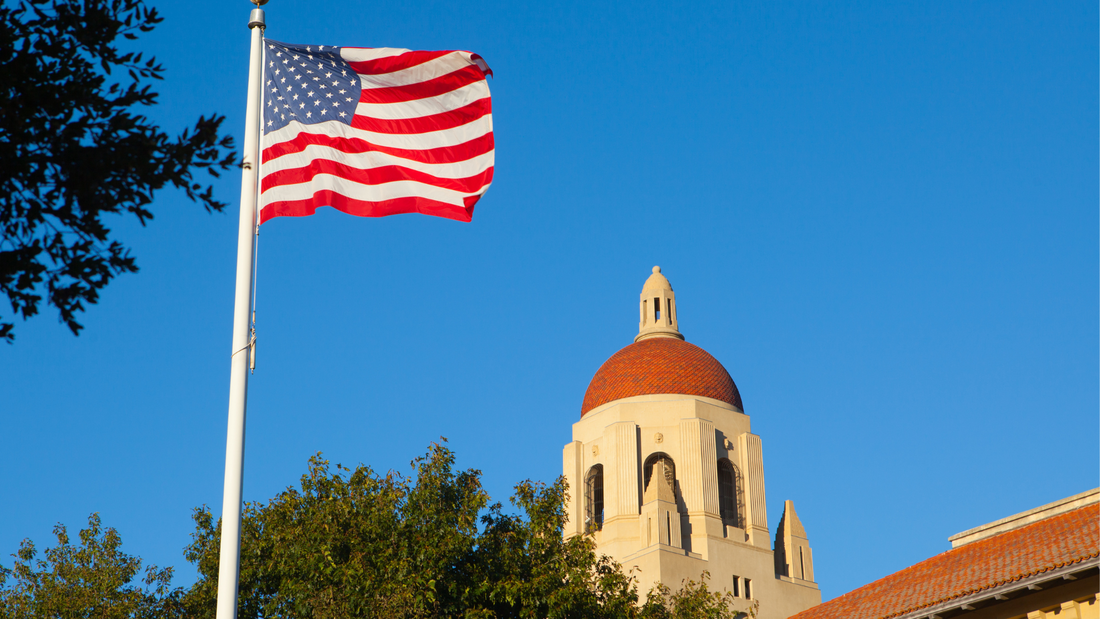
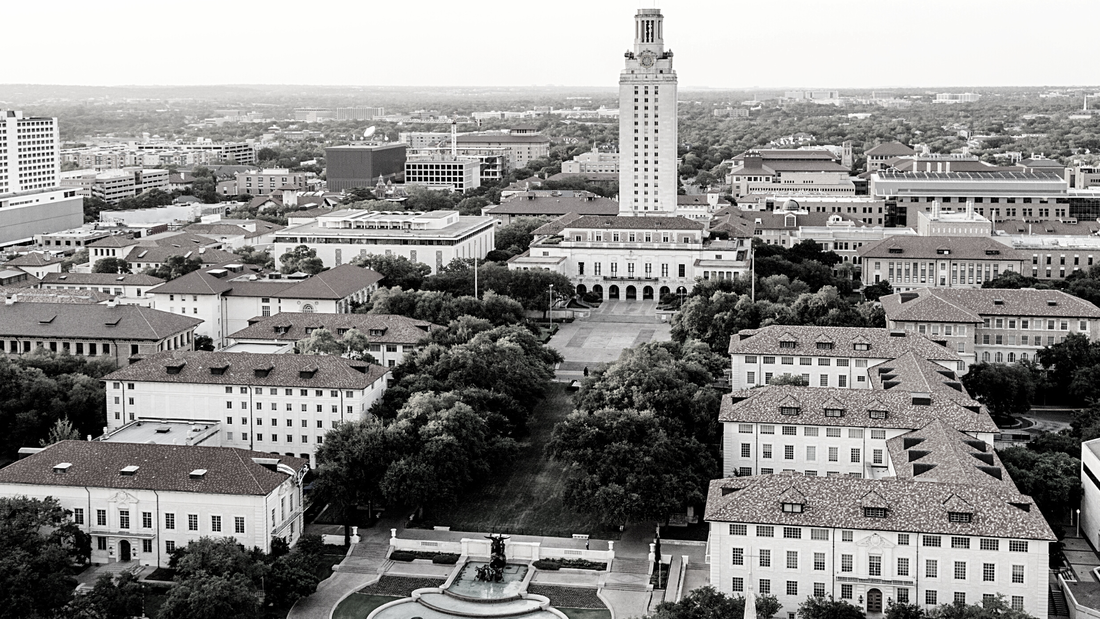

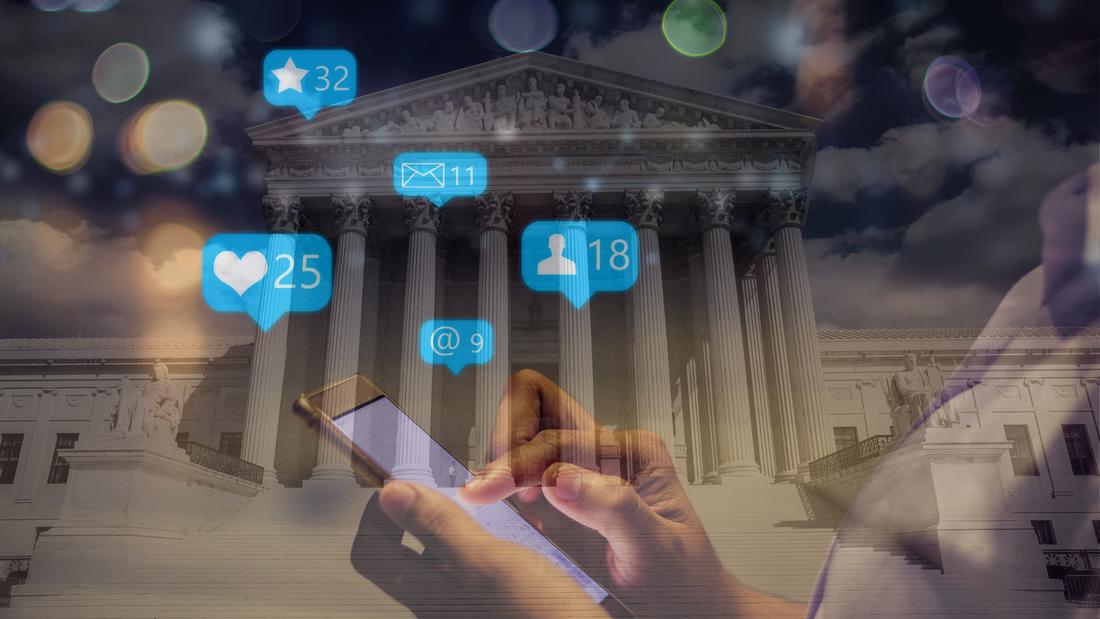






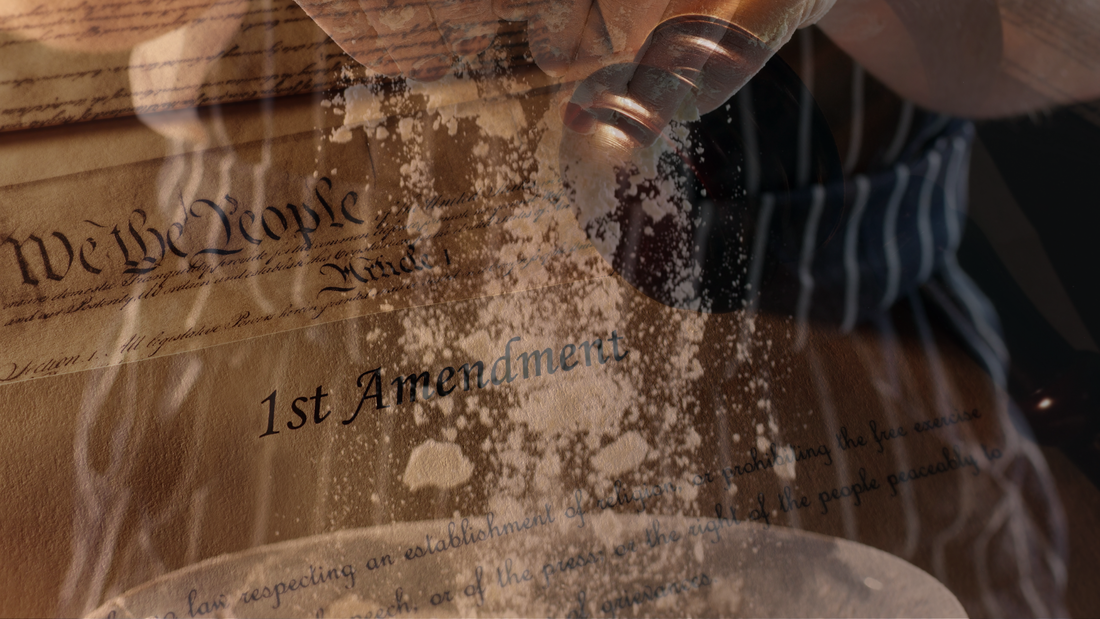

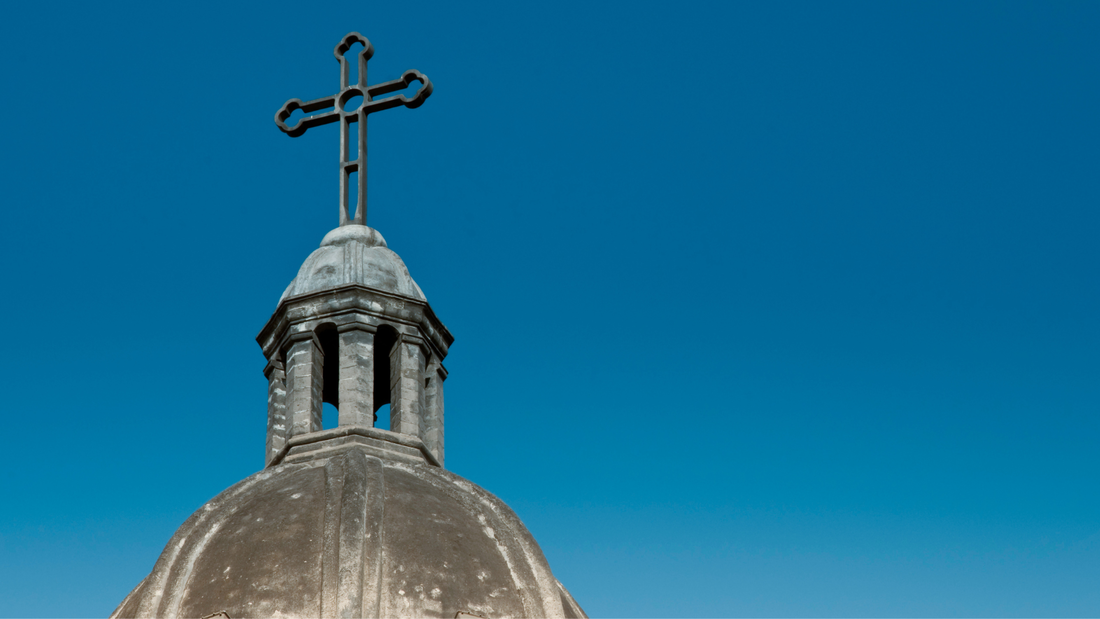
 RSS Feed
RSS Feed